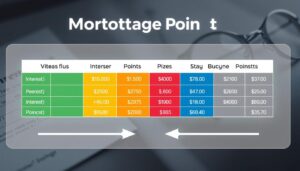**Title: Essential Questions Unmarried Couples Should Ask Before Buying a House**
**Content Length: Approximately 2000 words**
**Objective: Enhance SEO performance while maintaining the original meaning and context.**
—
**6 Questions Unmarried Couples Should Ask Before Buying a House**
Whether renting apartments or buying homes, many couples decide to live together without tying the knot. For many home buyers, its logical about 38% of couples who move in together before getting married do so because it makes good financial sense.
**Can an unmarried couple buy a house together?** Absolutely, and it’s incredibly common. However, as with any other decision, there are a few key factors to consider first to increase your chances of cohabitation bliss in your new dream home.
Here are a few questions unmarried partners should consider before buying a house:
### 1. Who Is Applying For The Mortgage?
Buying a house is a major commitment, married or not. Before you begin searching for a home, you should compare mortgage options and determine who is applying for the mortgage. Because unmarried couples would apply for a mortgage as separate individuals, the partner with the stronger financials and credit score may want to purchase the home to get better mortgage terms and interest rates. This is, perhaps, one of the biggest benefits of buying a house unmarried, particularly if one of you has less-than-stellar credit.
Before filling out the mortgage application, take some time to review each others credit score, debt-to-income ratio (DTI), income, employment status, and any additional assets.
For instance, most mortgage lenders require a credit score of at least 580 to qualify for a home loan, but a credit score of at least 620 may give you better options. If, for example, your partner has a credit score higher than 620, they may qualify for better terms and interest rates. This can save you both money on interest throughout your loan repayment term.
You can get an idea of how much youll pay every month using our mortgage calculator. Enter the estimated amount of your loan and interest rate to see what your monthly mortgage payment could be.
Some lenders may allow both of you to apply for a mortgage together. This may help you and your partner qualify for a larger mortgage because your incomes are combined. Just keep in mind that if one partner has a weaker credit score, the lender may base their lending decision on the lower credit score. In this case, it might be best for just one of you to apply for the mortgage.
### 2. Whats The Best Way To Hold The Title?
Your house title provides proof of ownership and a physical description of the property. It may also include liens on your property that allow others to have a claim on the property in certain situations. Your lender will have a lien on your title until the mortgage is repaid in full.
The way the title is worded can impact the way ownership is transferred as well as your rights to transfer ownership. Here are some options:
– **Sole ownership:** If one partner wants to own the property outright, they may select sole ownership.
– **Joint tenancy:** If you and your partner want equal shares of the property, you may want joint tenancy created under a single instrument with the right of survivorship. This means that, upon the death of a partner, the surviving partner will receive the deceased partners share (half) of the property.
– **Tenants in common:** Under tenancy in common, the co-owners enjoy undivided interest or equal rights to the entire property. Tenancy in common differs from joint tenancy because tenants in common hold individual titles for their share of the property and can dispose of it or have an heir inherit their ownership share.
– **Trust:** A living trust of real property holds legal and equitable title to the real estate. The trustee holds the title for the trustor (aka beneficiary) who retains all management rights and responsibilities.
How you title your property will impact the outcome of a later sale. It can also impact the taxes and fees associated with selling your home. To determine the best way to hold the title for your unique situation, contact a real estate attorney or tax advisor.
### 3. Should You Get A Cohabitation Property Agreement?
When couples live together, married or not, they typically accumulate equity. But, unlike married couples, unmarried couples may not have the same innate property protections.
Because of this, its wise to draw up a cohabitation property agreement with an attorney. The agreement will outline who owns what and what happens if a couple separates.
Without a cohabitation property agreement, you could experience time-consuming and expensive legal battles. Many agreements include:
– The type of ownership on the title and deed
– How income and expenses are shared
– How newly acquired assets are divided
– A buyout agreement
– An action plan for a job transfer
– A dispute resolution process
– An exit strategy
Creating a cohabitation agreement with an attorney will help you to focus on the exciting aspects of buying a house without worrying about how your rights and assets will be protected.
### 4. How Will You Split Costs?
In your cohabitation property agreement, you should lay out how you and your partner will pay for additional home expenses. How you split the expenses will depend on what you both are comfortable with and what works for your respective financial circumstances. There’s no one-size-fits-all solution to this, so feel free to experiment and do what works best for you and your partner.
For example, you may decide to open a joint bank account, and each of you contributes an equal amount every month.
Another option may be to divide your expenses. Have one partner pay for utilities and maintenance expenses while the other pays for lawn care services and cable. If one partner makes significantly more than the other, you may decide that the higher-earning partner should pay a greater share of the property costs.
Don’t forget about the upfront costs associated with buying a house, such as the down payment and closing costs, that might kick in before your mortgage payments even do.
Youll also need to factor in additional homeowner expenses, such as property taxes, homeowners insurance, and homeowners association fees if applicable.
### 5. What Happens If One Person Wants To Move Out Or Dies?
Whether its a breakup or a partner getting a job in another state, having a plan in place for these types of situations is essential. Situations change and relationships change. While it might sound pessimistic to plan ahead for these kinds of occurrences, you can avert potential headaches and legal issues by being proactive. Planning ahead can make the home buying process go even more smoothly.
A few options? You might be able to sell the house, or one of you can buy out the other, assuming you both are on the homes title.
Its also possible that if you decide to break up, the bank may force the sale of the property. If the partner keeping the property cant buy out the partner whos leaving, the best option would likely be to sell.
Depending on your agreement, any party who owns a portion of the property can force a sale. If you own 70% of the home and your partner wants to move out, you may need to pay them 30% of ownership. If youre both on the mortgage, you could also consider refinancing.
In the tragic event of a partners death, the title will determine what happens to the home. If the title states joint tenancy, the surviving partner will receive the deceased partners share of the property. If the title is joint tenancy in common, the percentage of the home owned by the deceased partner will transfer to their heir(s).
With tenancy in common, the deceaseds share of the property is distributed according to their wishes. That said, you may need to buy out the deceased partys share of the home or sell the home, depending on what the heirs decide.
### 6. Is Your Relationship Ready For Buying A Home?
This doesn’t have to warrant a stressful conversation, but you should take some time to talk about the future of your relationship and how buying a house will play into your dynamics as a couple. Ask yourself if your relationship is ready for the next step. Even if it’s not likely, if you were to break up with your partner, is the relationship mature enough for you both to figure out who gets the house, or what should be done with it?
Buying a house together is a commitment that can strengthen your partnership and help you make memories. However, take some time to consider how owning a home together will change the relationship or introduce new challenges. Being on the same page (or at least close to it) in terms of expectations can help make those moments even more enjoyable.
### FAQs: Buying A House With Someone Youre Not Married To
Here are a few common questions home buyers have when thinking about purchasing a house with their partner.
**What happens if one of us is not on the mortgage?**
Ultimately, the person whose name is on the propertys title is the owner of the property. They have full control over the home and can sell it with or without their partners permission. The partner whose name isnt on the title will have no ownership stake in the property.
**What needs to change if we get married after buying a house?**
If you and your partner get married after buying a house together, youll need to update a few documents. This will include the deed, title, homeowners insurance policy, and applicable utility accounts.
**Can I add my partners name to the mortgage after buying the house?**
Whether youre getting married or simply want to split ownership of the home, the only way to add your partners name to the mortgage is to refinance into a new loan.
**How will buying a house together before marriage impact our taxes?**
Buying a house can help you save money on your taxes through the mortgage interest deduction. However, most lenders only send one partner a copy of Form 1098, which shows how much mortgage interest you paid over the year. This means both partners will need to itemize their taxes and calculate the amount of interest each one paid throughout the year.
**Do we need to speak to an attorney?**
While its not required, its always a good idea to work with an attorney when buying a house as an unmarried couple. The attorney can make sure any rights of survivorship are put in writing and can be upheld.
### The Bottom Line: Buying A House Unmarried Is Complex, But Not Impossible
Buying a house while unmarried can be a complex situation, especially since there isn’t a prenup in place to indicate how the property will be divided in case you break up. However, it is also a time of great joy and excitement an experience that can undoubtedly bring you and your partner closer together.
To make sure the experience is as enjoyable as possible, its important to have full transparency with your partner.
Once youre on the same page and are ready to look for a home, get started on the mortgage process with O1ne Mortgage Inc. today. Visit [O1ne Mortgage Inc.](https://o1nemortgage.com) to request a mortgage quote, apply for a loan, or speak with a mortgage expert. You can also call us at 888-372-8820.
—
**Title Suggestions:**
1. “Key Questions Unmarried Couples Must Ask Before Buying a Home”
2. “Buying a House as an Unmarried Couple: Essential Questions to Consider”
3. “Unmarried and Buying a Home? Heres What You Need to Know”
**Keywords:**
– Unmarried couples buying a house
– Mortgage for unmarried couples
– Cohabitation property agreement
– Joint tenancy vs. tenants in common
– Homeownership for unmarried partners
– Real estate for unmarried couples
– Buying a home together without marriage







